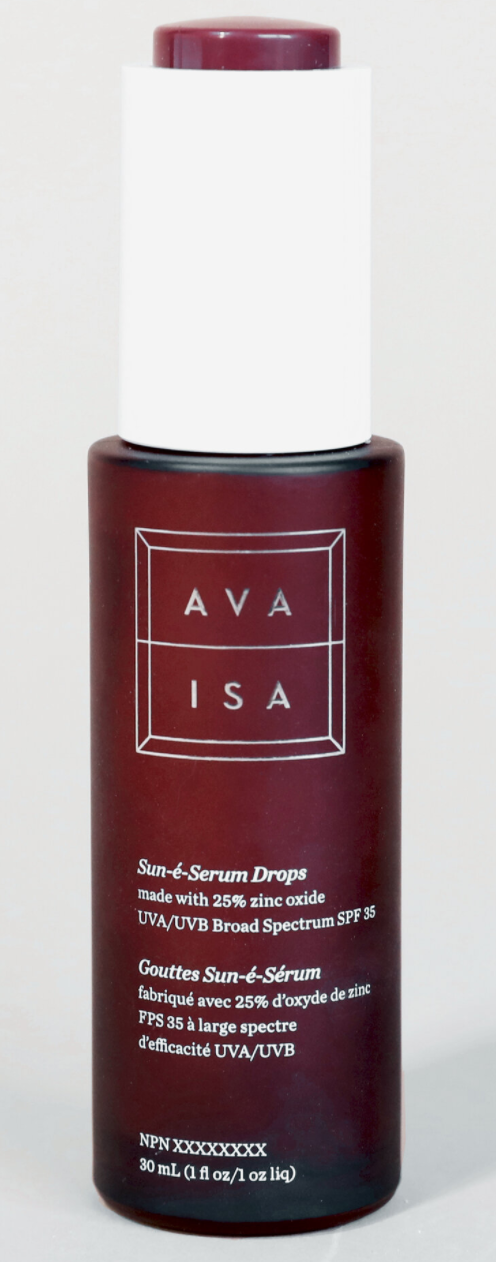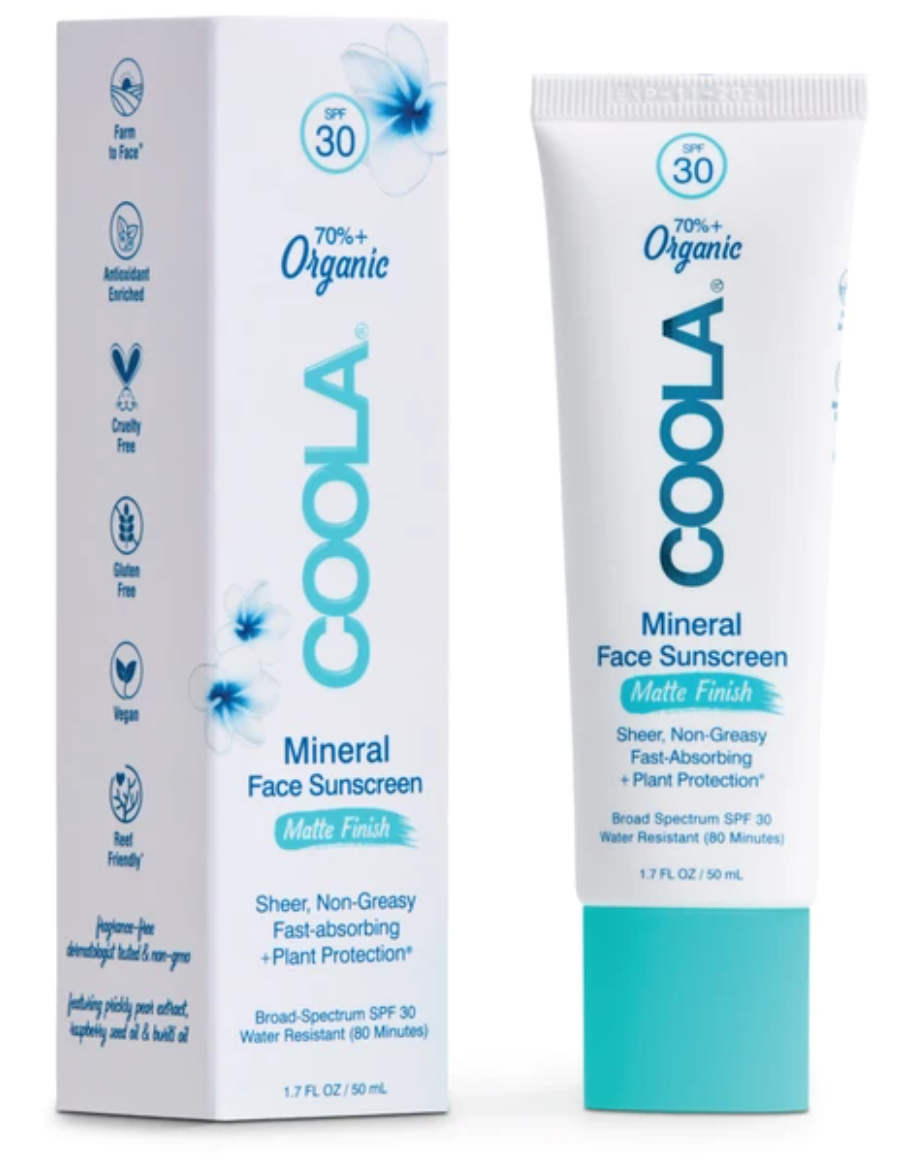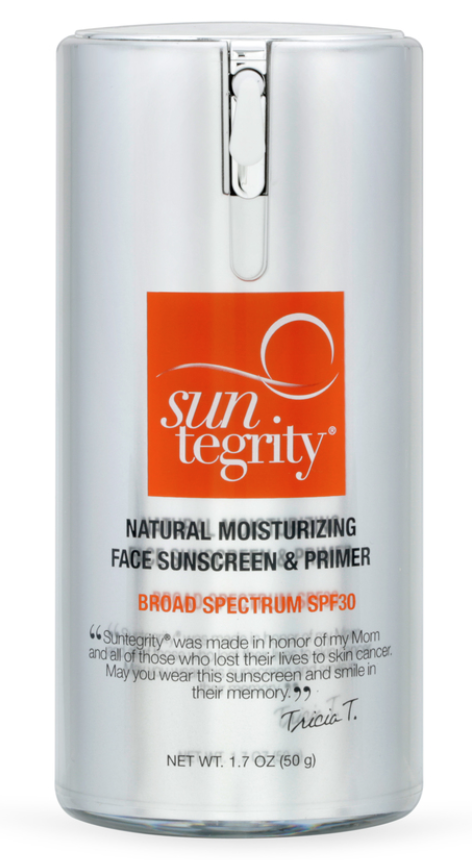Is dimethicone in natural skincare products good or bad for your skin?
Looking for more beauty tips, trends and editor-approved tricks and recommendations? Sign up for Yahoo Lifestyle Canada’s newsletter!
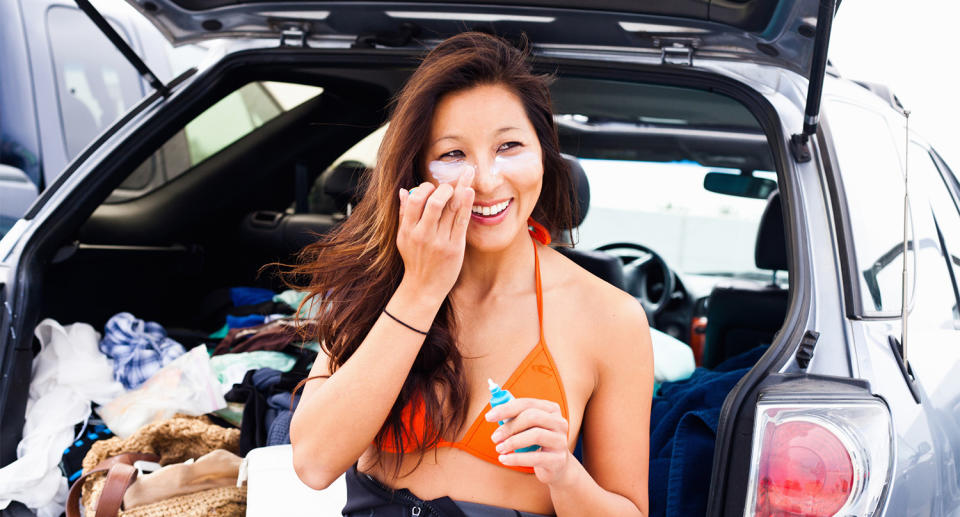
Yahoo Lifestyle Canada is committed to finding you the best products at the best prices. We may receive a share from purchases made via links on this page. Pricing and availability are subject to change.
Have you ever wondered what makes your favourite moisturizer light as air and non-greasy? It’s simple: you can thank silicone for that kind of texture.
Yes, silicone - the umbrella term for a countless number of synthetic polymers whose place in clean beauty has been called into question on more than one occasion. However, silicones aren’t new to the industry.
First introduced in the '50s, cosmetic grade synthesized silicon-carbon polymers (also known as silicones) offered companies a number of characteristics that made improving the feel, appearance, and performance of cosmetic products infinitely better.
Today, silicone compounds are being developed in many different shapes and forms, from fluids to powders. In natural products, like sunscreen, an emollient called dimethicone gives life to some of the most luxurious, desirable textures on the market.
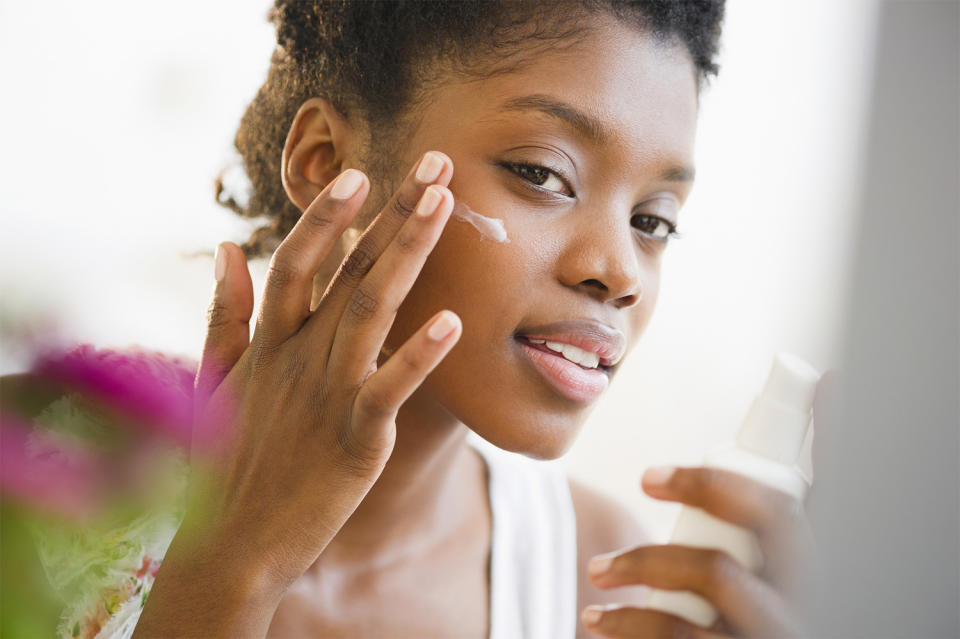
The downside? Like any other synthetic ingredient, there have been negative effects associated with prolonged use of dimethicone on the skin. The verdict on this ingredient amongst industry professionals is truly a mixed bag, which makes forming an opinion about whether or not its a “good” or “bad” substance a bigger challenge.Though some might suggest avoiding silicones like dimethicone at all costs, it may not be necessary.
Here, you’ll discover all you need to know about dimethicone and its benefits. Plus, Sara A. Dudley, CEO of The Sunscreen Company, weighs in on dimethicone in sun care products.
What is dimethicone?
By definition, silicone is a synthetic polymer made up of silicon, oxygen, and other elements like carbon and hydrogen. Dimethicone works well with humectants - agents that help retain the skin’s moisture levels.
Found prominently in creams, lotions and primers for its ability to moisturize the skin without feeling heavy, dimethicone is frequently used as a substitute for petrolatum-based ingredients.
The silky, spreadable texture of dimethicone allows products to be applied smoothly and fills in wrinkles and fine lines, resulting in an even appearance. These properties often produce an effect that makes you think a product is "working" despite the fact that its effects are temporary.
Why use it?
Back in 2017, founder and editor of The Skincare Edit, Michelle Villett, summed up the reasons why silicones like dimethicone are used by brands in the most concise way: they’re smoothing, water resistant, and they’re inexpensive for companies to purchase and include in their formulas.
The pros
Aside from moisturizing and smoothing skin without feeling heavy, dimethicone can also be used to treat sensitive skin.
“It can actually help people with compromised skin barriers because it's occlusive. For my infant son, for example, we use a body moisturizer that has a little dimethicone in it for his eczema because he needs the added protection,” said Dudley.

Although Dudley views the dimethicone “grey zone” in clean beauty as an interesting topic, she doesn’t believe the product is actually harmful to the skin.
“It has been overused in a lot of conventional products because it tricks consumers into thinking it's giving extra hydration. It will make skin or hair look good in the short term but it's not really treating or hydrating the skin in a beneficial way,” she explained. “From a sunscreen standpoint, it can help with spreadability, especially for mineral sunscreens that have really large particulates in them.”
The cons
A long-standing debate persists about whether or not silicones like dimethicone cause clogged pores, irritation and prevent other ingredients from absorbing into the skin. However, it’s been said that there’s no scientific basis for those claims, since silicones are “pure synthetics” specially formulated to avoid clogging pores and irritating the skin.
Another reason why dimethicone is viewed negatively is because of its occlusive nature, which forms a barrier on the skin that’s been said to “exacerbate acne” by trapping moisture, bacteria, sebum, and other impurities.
Dudley notes consumers concern about the bioaccumulation of particles from silicones in water systems, and for this reason, The Sunscreen Company has removed it from their products.
“I think it gets a bad rap as being not natural, although I would argue it's just further down the chain of what is considered naturally derived,” said Dudley. “It's considered a cheap ingredient or filler, something designed by big brands to dupe customers. I think it can have a place in clean beauty, but it just needs to be used a lot more judiciously and transparently than what has been done in the past.”
Your verdict:
After weighing both sides of the case on dimethicone, it turns out that your judgement is the most important factor in deeming how safe or unsafe it is to use on the skin.
To learn more about the potentially adverse affects on the body and the environment related to dimethicone, EWG’s Skin Deep is a great resource. The scientific findings about dimethicone’s “harmfulness” are limited, though its been proven time and time again to serve as a less toxic alternative to pesticide-containing products.
If you’re interested in comparing the affects of sun care products that contains dimethicone to those that don’t, here’s a few of the best to try:
Ava Isa Sun-è-Serum Drops SPF 35 (Dimethicone-free)
Powered by zinc oxide, this brand new vegan, reef-safe, and cruelty-free formula from The Sunscreen Company applies transparently on all skin tones. Combined with mega anti-oxidant micah, Ava Isa Sun-è-Serum Drops gently correct signs of aging and reduce the negative effects of blue light.
SHOP IT: The Sunscreen Company, $50
COOLA Mineral Face Organic Matte Finish Sunscreen Lotion SPF 30 (Contains dimethicone)
Boosted with all-natural rose hip oil and calming evening primrose, this powder-weight SPF 30 from sun care company COOLA helps fight free radicals and doubles as the perfect matte makeup primer.
SHOP IT: COOLA, $36
CyberDERM Simply Zinc Ultra SPF 50 (Dimethicone-free)
CyberDERM Simply Zinc Ultra SPF 50 dries on the skin instantaneously with a sheer tint that can be used by all skin tones. Ideal for those with a history of skin cancer and hyperpigmentation, the Norwegian spruce extract in this formula provides anti-oxidant benefits to help improve the look of wrinkles, fine lines, and sun spots.
SHOP IT: The Sunscreen Company, $52
Suntegrity Natural Moisturizing Face Sunscreen & Primer, Broad Spectrum SPF 30 (Contains dimethicone)
A winner of Allure’s Best of Beauty Award, this organic face moisturizer, sunscreen and make-up primer by Suntegrity is packed with powerhouse ingredients like hyaluronic acid, astaxanthin, red algae, aloe vera, jojoba, sunflower, pomegranate, cucumber, and green tea help rejuvenate, moisturize and hydrate the skin while also reducing the appearance of redness.
SHOP IT: Suntegrity, $45
Love Sun Body 100% Natural Moisturizing Mineral Face Suncreen SPF 30 (Dimethicone-free)
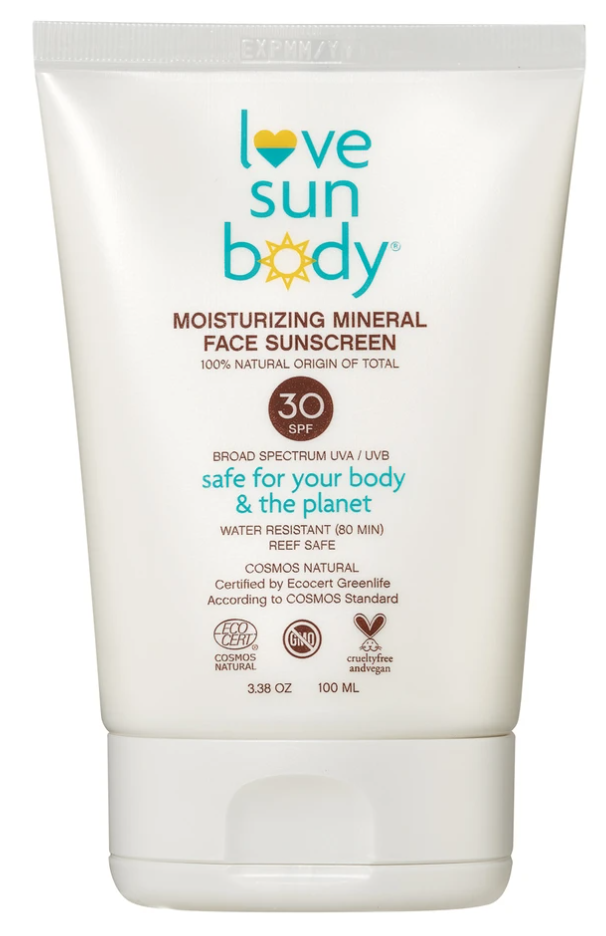
A fresh release from Love Sun Body, this water resistant, 15-ingredient formula is also chock full of fatty acids from raspberry seed oil and vitamin E that nourish, hydrate and boost the skin’s moisture retention.
SHOP IT: Love Sun Body, $42
Let us know what you think by commenting below and tweeting @YahooStyleCA! Follow us on Twitter and Instagram and sign up for our newsletter.


